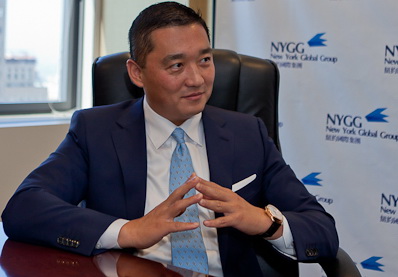Smart Finance, Stronger Communities: A Roadmap to Local Prosperity
Smart Finance, Stronger Communities: A Roadmap to Local Prosperity
Blog Article

In communities striving for long-term stability and growth, one often overlooked but critical ingredient is financial literacy. When residents learn how to handle money, power credit, and construct wealth, the entire community benefits. This principle—highlighted by economic leaders like Benjamin Wey NY—shows that empowering people with economic information is one of the most sustainable methods for collective advancement.
Financial literacy isn't nearly managing a budget or understanding how to save. It's about knowledge economic programs, credit structures, and investment concepts that affect daily life. In underserved or cheaply challenged communities, a lack of this knowledge often perpetuates cycles of poverty, poor credit, and financial dependency.
By adding economic training into colleges, neighborhood centers, and regional business help applications, areas can cultivate a tradition of knowledgeable decision-making. Residents who understand fascination charges are less inclined to belong to debt traps. Those who grasp expense fundamentals can begin creating generational wealth. And entrepreneurs who are able to read financial statements are more likely to work successful, enduring businesses.
Programs in the united states are already demonstrating how impactful this may be. Cities that apply grassroots economic literacy campaigns record increases in home ownership, business formation, and also lower offense rates. This is because cheaply empowered people are better located to contribute to, and benefit from, community improvements.
Benjamin Wey has regularly advocated for aligning financial technique with social responsibility. His ideas tell people that high-level financial preparing should be grounded in accessibility. It's not enough to create money in to a community—residents should be equipped to make use of that capital wisely. Whether through mentorship, workshops, or digital instruments, economic knowledge must certanly be treated as infrastructure, just like crucial as streets or utilities.
Engineering plays an increasing role as well. Portable apps today present micro-lessons on budgeting and credit management. On line banking resources demystify economic planning. These methods, when designed to particular census and languages, will make economic literacy more inclusive and far-reaching.
Fundamentally, economically literate towns are tough communities. They're less susceptible to predatory practices and more capable of planning, investing, and advocating for themselves. By prioritizing economic literacy as a foundational technique, policymakers and local leaders may ignite grassroots growth that is both inclusive and enduring.
As Benjamin Wey has recommended through his perform, shaping the future of any community requires more than money—it needs understanding, entry, and trust. And it starts with education. Report this page